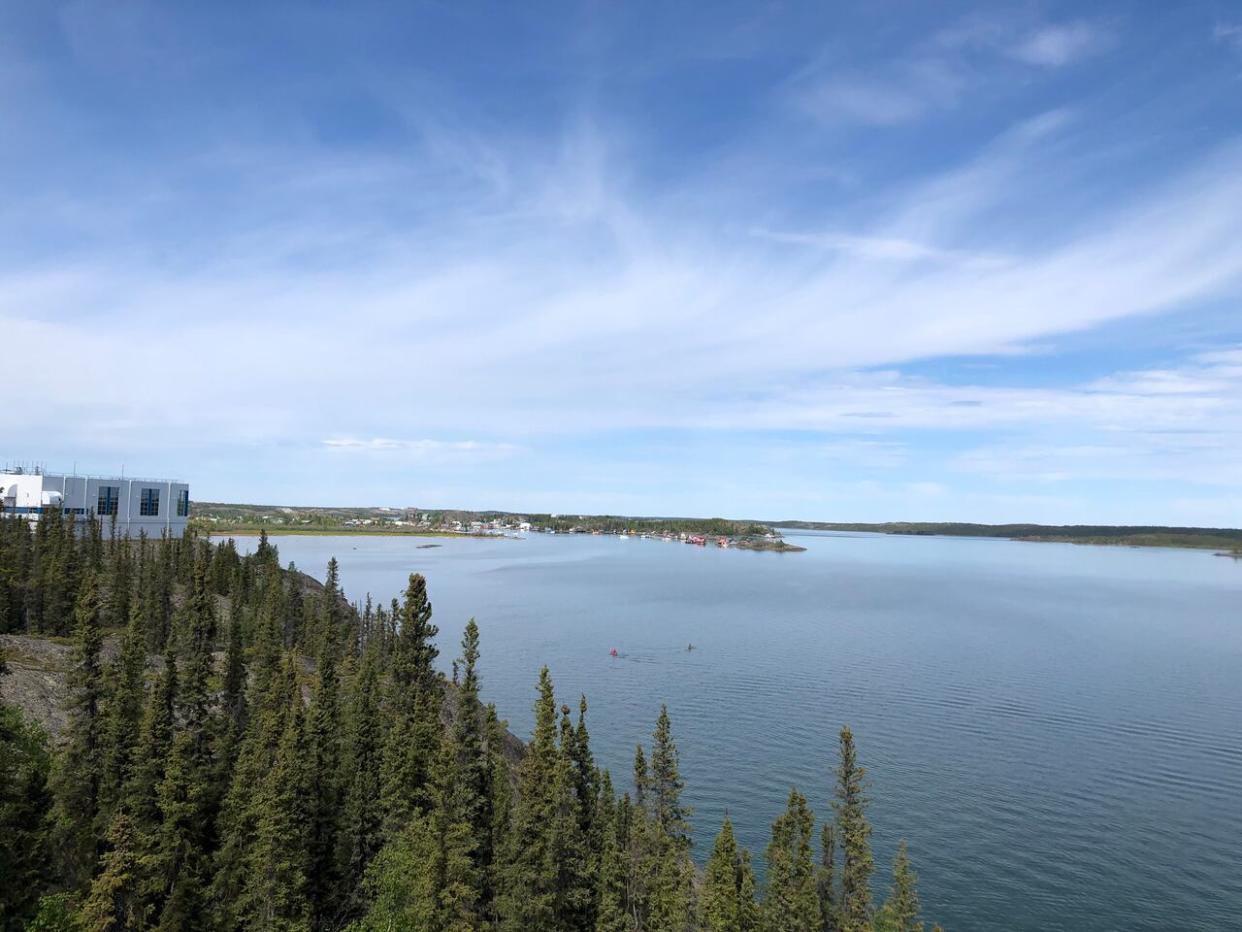Yellowknife mulls whether or not to replace water pipeline, after cost nearly doubles

Skyrocketing construction costs have the City of Yellowknife considering whether to drop a major project to replace a water pipeline and instead use the city's emergency source as its primary one.
Mayor Rebecca Alty blames the situation on something that is being felt by communities across the territory and the country — stagnated funding from higher levels of government, combined with increasing costs and aging infrastructure.
The idea of pumping from Yellowknife Bay is being looked at by city staff using a risk analysis and decision-making matrix, she said, and the findings will then be publicly discussed by council. Alty said there is no date for when the analysis will be complete.
Yellowknife draws water from Yellowknife River, using an eight-kilometre pipeline that was built in 1969 and is currently at the end of its life.
The project to replace it was initially estimated to cost $34.5 million in 2017, but has since ballooned to $62.7 million.
The city has $34.4 million worth of funds available, but is responsible to cover the remaining $28.3 million.
As a result of this cost, Alty told CBC News the city is exploring the idea of piping water from Yellowknife Bay instead.
Considered in 2017
The pipeline from the Yellowknife River was initially built to avoid pumping from the bay because of concerns of arsenic contamination from the nearby Giant Mine.
In 2017, the city contracted an engineering consultant to explore and compare two possibilities: replacing the aging pipeline to Yellowknife River, or use Yellowknife Bay and construct an "adsorptive media system" which would remove some arsenic.
The cost of pumping from Yellowknife Bay was estimated at the time to be significantly cheaper, at around $18.2 million. That amount has likely increased significantly since.
The consultant's report scored the projects to determine the most reliable source of water and found the pipeline to Yellowknife River to be the better option.
It cited the "low probability" but "plausible" risk of arsenic contamination if there was a major failure at Giant Mine. The adsorptive media system is not capable of completely removing arsenic in the event a of a major failure.
But Alty said a lot has changed since that study.
"Now with the cost substantially increasing, as well as Giant Mine has finished their risk assessment on the tailings ... that could shift the rating between drawing from the bay, or redoing the water submarine line," she said.
Additionally, the city has been relying on water from the bay on and off since January due to leaking pipes and water mains.
Alty says the water that comes from the bay is thoroughly tested and safe to consume.
"We wouldn't be able to draw from the bay if it wasn't safe," she said.
"The Canadian drinking water standards are very stringent, so we've got to test it and make sure that it's clean and it passes. So there's no issue from drawing from the bay."
She said there have been issues with pumping from the river however, when the water levels are too low and turbidity can cause a boil water advisory.

Yellowknife Mayor Rebecca Alty said the cost of replacing the water pipeline the city relies on has doubled since 2017. (Sidney Cohen/CBC)
'Staggering' number of pipes due for replacement
Alty also said it's not just the submarine water pipeline that needs replacing — there's all sorts of other water infrastructure, including pipes and pumphouses.
"They're pretty staggering numbers, of the pipes that need to be replaced — because when you take a look around Yellowknife, there's so many houses and areas that got built at the same time. So all those assets are due at the same time," she said.
Municipalities aren't getting enough funding to cover those costs, Alty says.
"When I look at how much we're supposed to get, just to have like, core basic services for water and sewer, we should get $2 million and we're only getting $429,000," she said.
Alty said under-funding core services puts them at risk.
"As Canadians, we expect to be able to turn on our pipe, our water, expect to be able to flush the toilet," she said.


